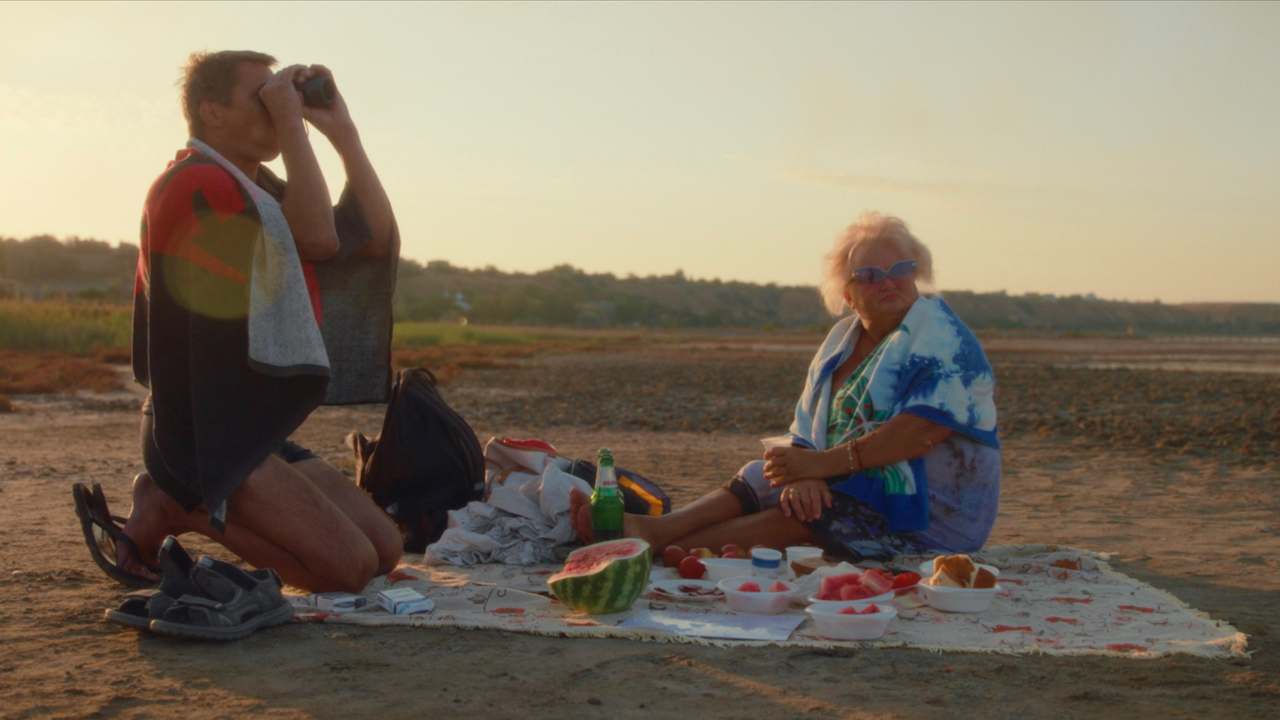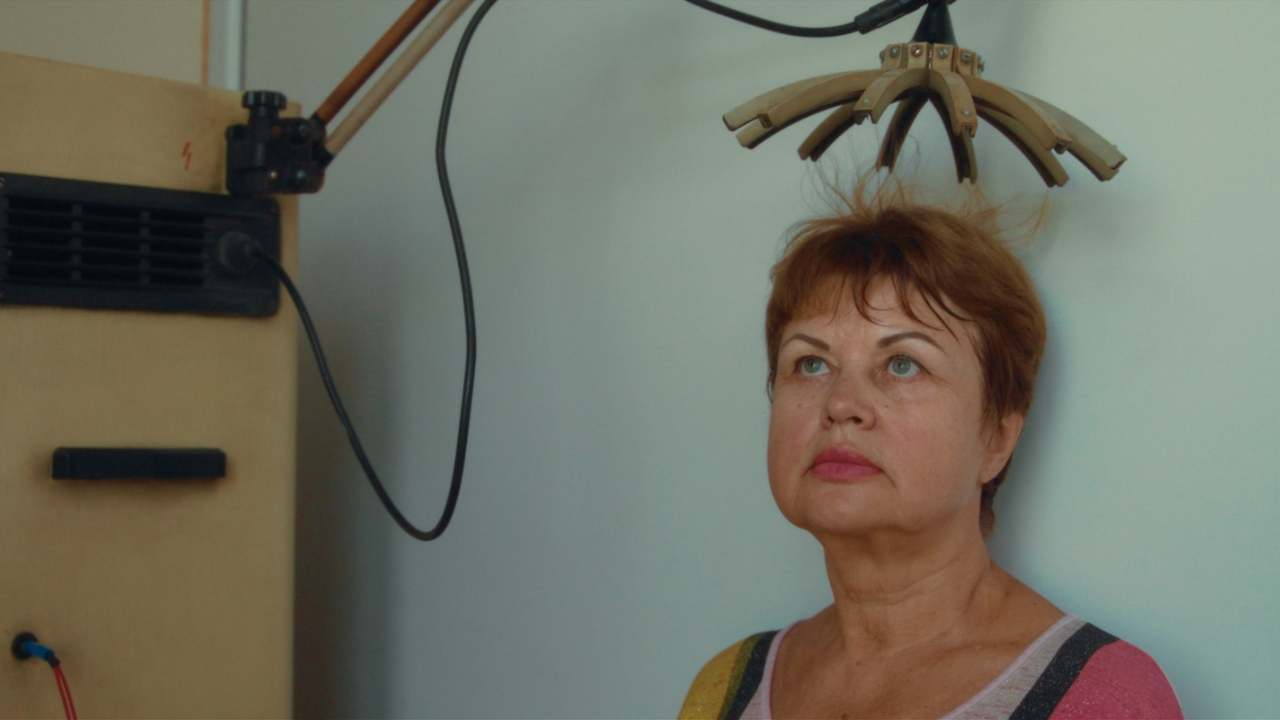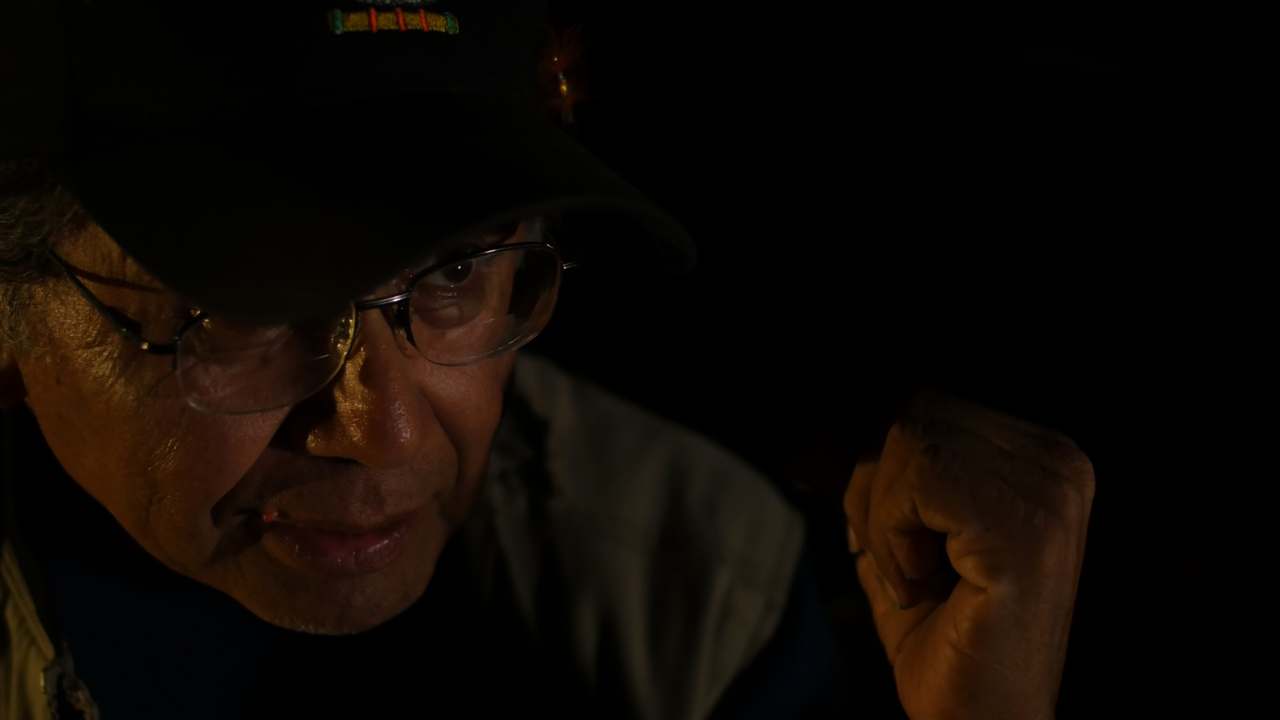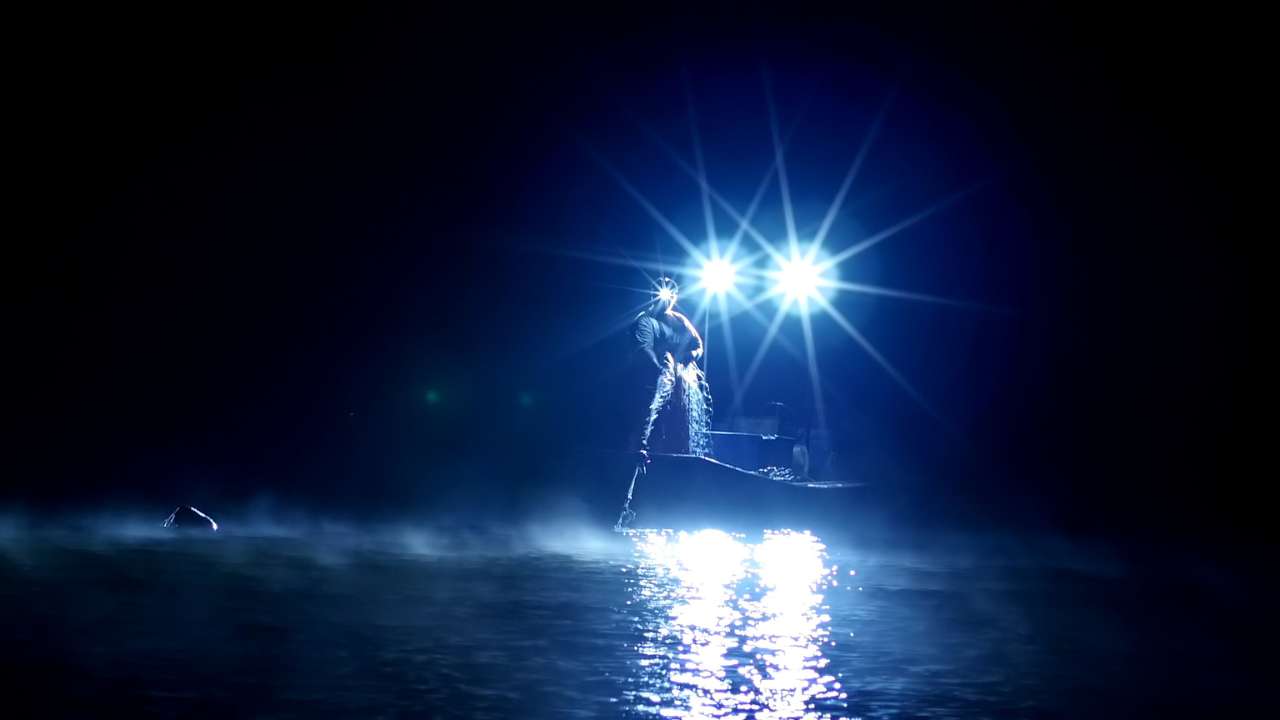Armed conflicts rarely, if ever, end the moment a peace treaty is signed. Their ruinous power not only claims thousands of lives, separates families, and lays waste to landscapes but also leaves behind profound psychological scars that – despite the passage of time – do not heal. The grim, exhausting shadow of war constantly haunts even those striving to lead ordinary lives under the ever-present threat of violence. In this year’s International Documentary Competition at the Kraków Film Festival, the enduring reverberations of war affect both Al Moon – a veteran of the Vietnam War – in New Beginnings as well as the protagonists of the Ukrainian-Irish co-production Sanatorium.
While separated by style and location, both films share a central theme: the echo of conflict that refuses to fade. Whether in the greenish corridors of a Ukrainian health resort or amidst the mist-shrouded landscapes of America, the trauma of war continues to resonate – in people and places. The sensitivity of their respective filmmakers makes Sanatorium and New Beginnings transcend the traditional bounds of documentary. These are moving testimonies from those attempting to find meaning in a reality marked by violence and loss. In a world where wars seem to have no clear resolution, these films remind us that even in the bleakest of circumstances, the human yearning for love, renewal, and joy persists. And sometimes, the fiercest battles do not happen on the front lines, but within us.
Living with War in the Background
In Sanatorium Irish director Gar O’Rourke takes the audience to Kuyalnik, once a prestigious Ukrainian spa situated near Odesa. Though still offering its famed mud baths and physiotherapy treatments, the facility has seen a dramatic decline in visitors since Russia’s full-scale invasion in 2022. Yet those who – despite the circumstances – do come there bring with them stories of loss, hope, and endurance. A young woman undergoing fertility treatment, a mother dreaming of her son’s wedding, a widow mourning a fallen soldier, a serviceman recovering before returning to the front line. Together, they form a mosaic of stories that resonate between peelings, mud baths, and air raid sirens.


At first glance, the resort seems to exude a holiday charm, but O’Rourke remains vigilant, never letting us forget the war ravaging Ukraine just beyond the frame. Cinematographer Denys Melnyk drifts through the pastel corridors of the complex, capturing moments where the present collides with the decaying Soviet architecture and personal dramas unfold into a quiet, deeply moving portrait of a nation learning to endure. Sanatorium is not a war film in the conventional sense; rather, it documents life with war constantly in the background – its far-reaching effects that seep into even the most mundane corners of existence.
A Past That Won’t Go Away
“The past clings hardest when you try to outrun it,” reflects the protagonist of the moving documentary New Beginnings. Its protagonist, Al Moon, is a Native American veteran of the Vietnam War living in Northern California, where the Klamath River – once a sacred lifeline and a source of ancestral connection – has all but withered in the wake of ecological catastrophe. Together with it, the surrounding community, too, has begun to ail. Al himself, balancing on the border of time, memory, and identity is unwell – not necessarily in body, but in soul, and not recently, but for the past forty years.


He spent decades evading the demons of his past before finally deciding to embark on a therapeutic journey across America. His aim: to seek out former brothers-in-arms and, believing that only by reckoning with the past can he open to the future. During this slow, deeply meditative pilgrimage, he is accompanied by the film’s co-directors whose attentive gaze give Al an opportunity to speak out. A chance meeting with the French filmmakers resulted in a project made over several years, and the trust built between them seems to emerge from every frame. No wonder it is them – and ultimately us – that Al entrusts with his most guarded secret: the real reason he enlisted to fight. The film’s intimate atmosphere is further emphasized by numerous close-ups, low-lit cinematography, and Al’s whispered voiceover, which gently guides us through the landscapes of America and his own memory. Al’s story is one of loneliness, disintegration, and the spiritual void left by war – even if several decades have passed since its resolution. These monologues resonate beyond personal grief – his recollections, reflections, and dreams subtly expose the broader structures of systemic violence inflicted upon Indigenous communities – betrayed, marginalised, and forgotten.
This year, 13 new films from around the world are going to compete in the International Documentary Competition for the coveted Golden and Silver Horns
Passes for the 65th Kraków Film Festival are now on sale!
The Krakow Film Festival is on the exclusive list of film events qualifying for the Academy Awards® in short film categories (fiction, animation, documentary) and feature-length documentary, the European Film Awards in the same categories, and serves as a qualifying event for the BAFTA Awards.
The Krakow Film Festival is organised with financial support from the City of Krakow, the Ministry of Culture and National Heritage, the Polish Film Institute, the Creative Europe MEDIA Programme. The Polish Filmmakers Association serves as co-organiser.
Współorganizatorem KFF w Barbakanie jest Narodowe Centrum Kultury w ramach programu kulturalnego polskiej prezydencji w Radzie Unii Europejskiej 2025.
The 65th Krakow Film Festival will be held in cinemas from 25 May to 1 June 2025, and online on KFF VOD from 30 May to 15 June 2025.